In the quest for achieving weight loss goals, many individuals often overlook the crucial role that proper nutrition plays in their journey. While exercise is often emphasized, the importance of a balanced diet cannot be understated. In this article, we will delve into the various aspects of nutrition for weight loss, including the significance of understanding its importance, diagnosing and treating nutritional imbalances, as well as identifying symptoms and causes of poor nutrition. By exploring these topics, we aim to provide valuable insights and guidance to individuals who are seeking effective and sustainable weight loss strategies.
1. "Understanding the Importance of Proper Nutrition for Effective Weight Loss"
Proper nutrition plays a vital role in achieving effective weight loss. It is not just about counting calories or following fad diets; instead, it involves making sustainable and healthy dietary choices. Understanding the importance of proper nutrition is essential for anyone looking to shed those extra pounds and maintain a healthy weight in the long run.
Firstly, proper nutrition provides the body with the necessary nutrients it needs to function optimally. When we consume a balanced and nutritious diet, our body receives essential vitamins, minerals, proteins, carbohydrates, and fats in the right proportions. These nutrients are vital for various bodily functions, including metabolism, digestion, and energy production. A well-nourished body is more likely to have a healthy weight and overall well-being.
Secondly, proper nutrition helps in controlling appetite and managing cravings. Many weight loss journeys fail due to constant hunger and the inability to resist unhealthy food choices. By consuming a diet rich in fiber, lean proteins, and healthy fats, individuals can feel fuller for longer periods. This reduces the chances of overeating or binge eating, promoting weight loss. Additionally, a balanced diet that includes all food groups can prevent nutrient deficiencies, which can also contribute to cravings and overeating.
Moreover, proper nutrition supports muscle growth and maintenance. When we lose weight, it is crucial to preserve lean muscle mass. Adequate protein intake is essential for repairing and building muscles. Including lean sources of protein, such as chicken, fish, tofu, and legumes, in our diet can help preserve muscle mass while losing
2. "Diagnosing and Treating Nutritional Imbalances for Successful Weight Loss"
Diagnosing and treating nutritional imbalances play a crucial role in achieving successful weight loss. Many individuals struggle to shed those unwanted pounds due to underlying nutritional deficiencies or imbalances. Identifying and addressing these issues is essential for long-term weight management and overall well-being.
One of the primary ways to diagnose nutritional imbalances is through a comprehensive dietary assessment. This involves analyzing an individual's current eating habits, nutrient intake, and overall dietary patterns. A trained healthcare professional, such as a registered dietitian, can provide valuable insights into areas of improvement and highlight any deficiencies or excesses in the diet.
Symptoms of nutritional imbalances may vary depending on the specific nutrient deficiency or excess. For instance, a deficiency in iron may present with symptoms such as fatigue, weakness, and pale skin, while an excess of sodium may lead to bloating, high blood pressure, and water retention. By recognizing these symptoms, healthcare professionals can determine the underlying nutritional issues contributing to weight gain or inhibiting weight loss.
Once nutritional imbalances are identified, treatment strategies can be implemented to rectify these issues. This typically involves creating a personalized nutrition plan that focuses on rebalancing nutrient intake and addressing any deficiencies or excesses. The plan may include adjustments in macronutrient distribution (carbohydrates, proteins, and fats), portion control, and increasing or decreasing specific nutrient intake.
Incorporating a variety of whole foods is crucial for providing the body with the necessary nutrients while promoting weight loss. This may involve increasing the intake of fruits
3. "Identifying Symptoms and Causes of Poor Nutrition in Weight Loss Journeys"
When embarking on a weight loss journey, it is crucial to identify the symptoms and causes of poor nutrition. This knowledge plays a significant role in ensuring that individuals make informed decisions about their dietary choices. Identifying these symptoms and causes can help individuals address any underlying issues and develop a proper nutrition plan that supports their weight loss goals.
One of the primary symptoms of poor nutrition during weight loss is a lack of energy. When the body does not receive the necessary nutrients, it struggles to function optimally, leading to fatigue and a general feeling of weakness. Individuals may find themselves unable to sustain regular physical activity or find it difficult to complete daily tasks due to low energy levels.
Another symptom to look out for is nutrient deficiencies. When following a restrictive diet or not consuming a well-balanced meal plan, individuals may not obtain all the essential vitamins, minerals, and macronutrients required for optimal health. Deficiencies in nutrients such as iron, vitamin D, or B vitamins can manifest as various symptoms, including hair loss, brittle nails, weakened immune system, and poor cognitive function.
Weight loss journeys can also be hindered by emotional and psychological symptoms caused by poor nutrition. The restriction of certain foods or the adoption of extreme dieting practices can lead to feelings of deprivation, frustration, and even depression. Emotional eating or binge eating episodes may occur as a result, further complicating the weight loss process.
Several causes contribute to poor nutrition during weight loss journeys. Firstly, inadequate meal planning and preparation can lead to haphazard food
